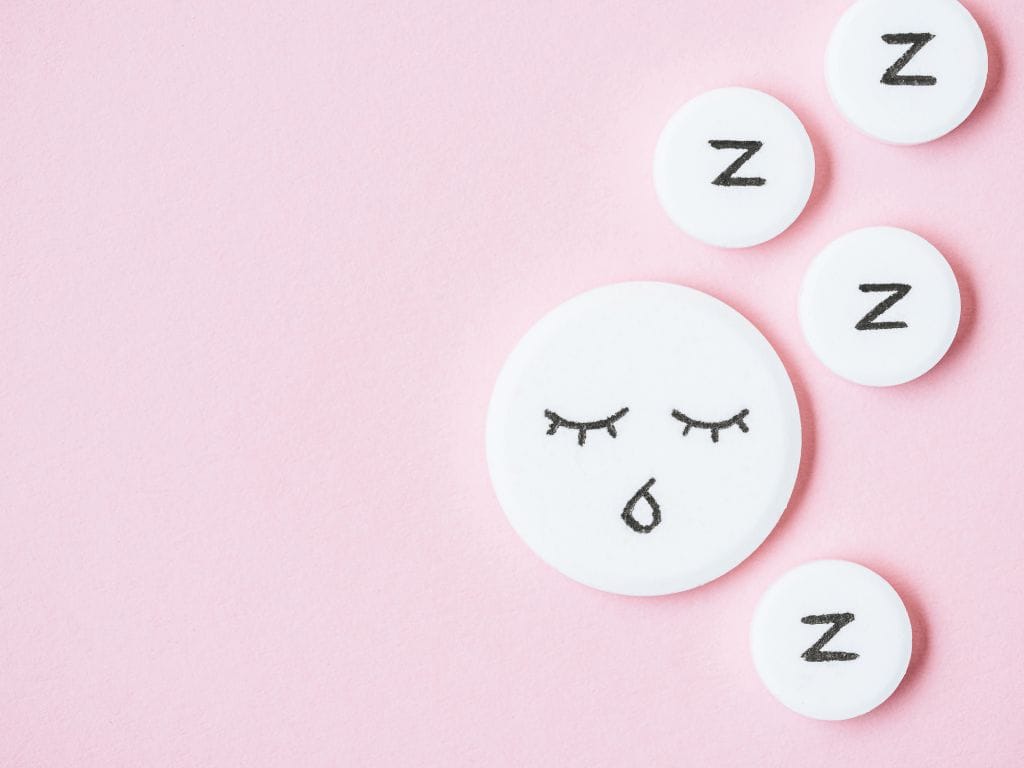6 Tips for Better Sleep
Whether you’ve been dealing with insomnia for a short period or a long time, implementing these strategies can make a significant difference in your sleep quality and overall well-being. This article by Tropika Club is chocked full of tips that will help you get past your condition.
Table of Contents
- Stick to a consistent sleep schedule: Establish a regular bedtime and wake-up time, even on weekends, to regulate your body’s internal clock and promote better sleep.
- Create a sleep-friendly environment: Make sure your bedroom is cool, dark, and quiet. Use comfortable bedding and invest in a good mattress and pillows to optimize your sleep environment.
- Limit exposure to electronic devices before bed: The blue light emitted by screens can interfere with your sleep. Avoid using smartphones, tablets, or laptops for at least an hour before bedtime to allow your mind to relax.
- Avoid stimulants and heavy meals close to bedtime: Avoid consuming caffeine, nicotine, and large meals within a few hours of going to bed. These can disrupt your sleep and make it harder to fall asleep.
- Establish a relaxing bedtime routine: Engage in calming activities before bed, such as reading a book, taking a warm bath, or practicing relaxation techniques like deep breathing or meditation. These rituals signal to your body that it’s time to wind down and prepare for sleep.
- Exercise regularly, but not too close to bedtime: Regular physical activity can promote better sleep, but try to finish your workout at least a few hours before bedtime. Exercising too close to bedtime can increase alertness and make it difficult to fall asleep.
1. Shut off all electronics 30 minutes before bedtime
Make sure that your electronics, such as TVs, computers and gaming consoles, are powered down at least thirty minutes before bed. These kinds of electronics are too stimulating. Turning them off will give your body the ability to prepare for resting. Avoid your television and computer after a particular time. It’s important to initiate a digital curfew for the entire family, a time at which you and your kids turn off all electronic devices for the night. Try setting the curfew at two hours before bed, one hour before bed, or even 30 minutes before bed—the earlier in the evening, the better, but whatever feels realistic. The blue light emitted by screens on cell phones, computers, tablets, and televisions restrain the production of melatonin, the hormone that controls your sleep/wake cycle or circadian rhythm. Reducing melatonin makes it harder to fall and stay asleep. Most Americans admit to using electronics a few nights a week within an hour before bedtime.
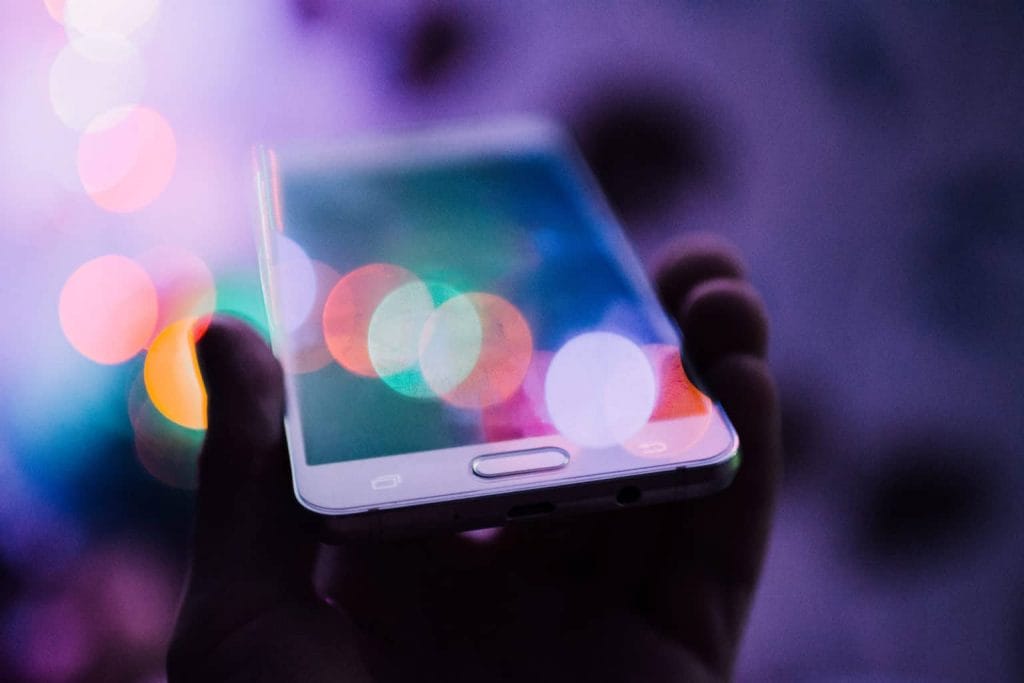
2. Reconfigure your bedroom for sleep
Your sleeping room needs to be cosy in order to be conducive to getting to sleep quickly. The amount of light and noise should be adjusted to allow complete relaxation for better sleep. Try to avoid really bright alarm clocks. Get yourself a great mattress that offers firm support.
Check your mattress often for signs of wear and tear. If you’re not comfortable, it may need to be replaced. Buy new pillows and bed linen whenever necessary. Avoid allergens when choosing bedding. Although feather pillows might be more comfortable, they are a waste of money if you’re allergic to them.
If you have trouble with insomnia for any length of time, consider getting a new mattress. Look for one that is firm without being hard, as these are the most conducive to sleep, and provide you with the most support. Mattresses are the cause of insomnia in many cases, but people just don’t realise it!
Don’t make your bed the hub for all your activity. Your bed should only be for sleeping. If you are always trying to do other things in bed, your body knows that and isn’t quite sure what it is there for. Make sure that you keep other activity out of bed, and you’ll fall asleep better. Make sure that you only utilise your bedroom for sleeping. When you turn it into a hub of activity, your brain can’t calm down. By cutting out everything except sleep in your bedroom, your brain will get back on track with letting you fall asleep more readily there.
If noises are awakening you, you may not even know it is happening. They may be so quick that you wake up and hear nothing, so you don’t know why you’re waking up at all. Consider putting a recorder in your room to see if this may be the problem.
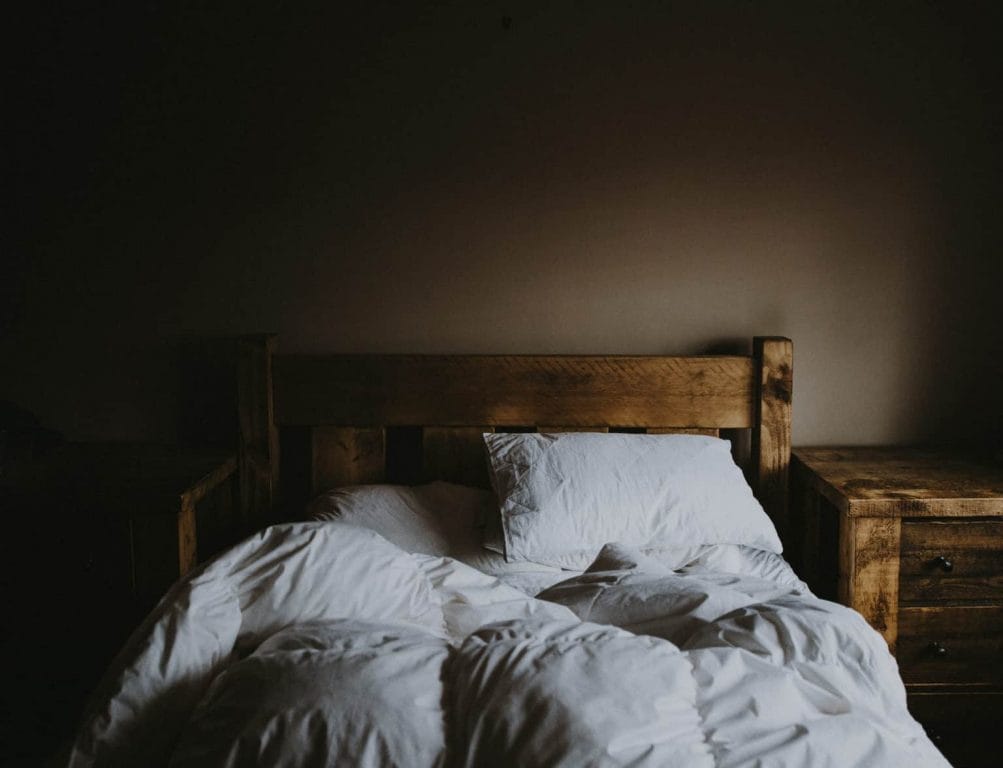
3. Regulate your body clock
Get out into the sunshine every day. Seeing the natural light of the sun allows your body to differentiate between daytime and nighttime. It also helps your body produce melatonin, which helps your body maintain a regular pattern of sleep. Without an adequate amount of melatonin, your body may not be able to regulate proper sleep-wake patterns.
You need as little stress as possible on you before bed. Try different relaxing techniques to help you fall asleep. To get a good night of rest, both your body and mind should be relaxed. Meditation, conscious breathing and even guided mental imagery all serve.
If you aren’t tired, sleep will be hard. If you have to sit down at your job, take breaks and stay moving as much as you can. Doing a bit of physical exercise is excellent for bringing on regular sleep.

4. Try herbal remedies such as chamomile and lavender
For people who have trouble falling asleep at night, many herbs have been used to help people sleep for centuries. Some herbs that help induce sleep are passionflower or chamomile tea, California poppy, kava, valerian and hops. These herbs will relax the body and help induce restful sleep.
Chamomile tea. Simple, delicious, and effective. Chamomile tea has been used as a relaxation aid for centuries, but it’s more than just a folk remedy. One review found that the stuff acts as a mild sedative, helping to calm the nerves, reduce anxiety, and ease insomnia. And don’t be afraid to make a strong brew. Some experts recommend using two or three tea bags to get the full, sleep-promoting effect.
Valerian. Like chamomile tea, folk practitioners have turned to the root of this flowering plant to easy anxiety and promote relaxation. And it works: According to a review of sixteen studies, valerian root is shown to help people doze off faster and sleep more soundly. It might not be ideal for long-term use, though, so talk with your doctor before starting a valerian regimen.
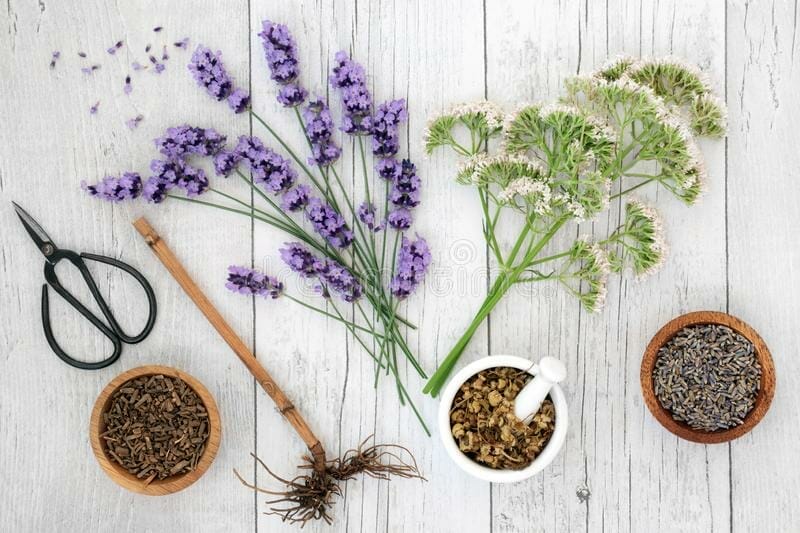
Read Also:
5. Avoid coffee or caffeine at night
If you are a coffee drinker, you could be causing your own insomnia. Caffeine stimulates the body, and the results can last for many hours. Drink no more than two cups of coffee on any given day, and be sure that you drink them both before noon, and then quit the caffeine for the rest of the day.
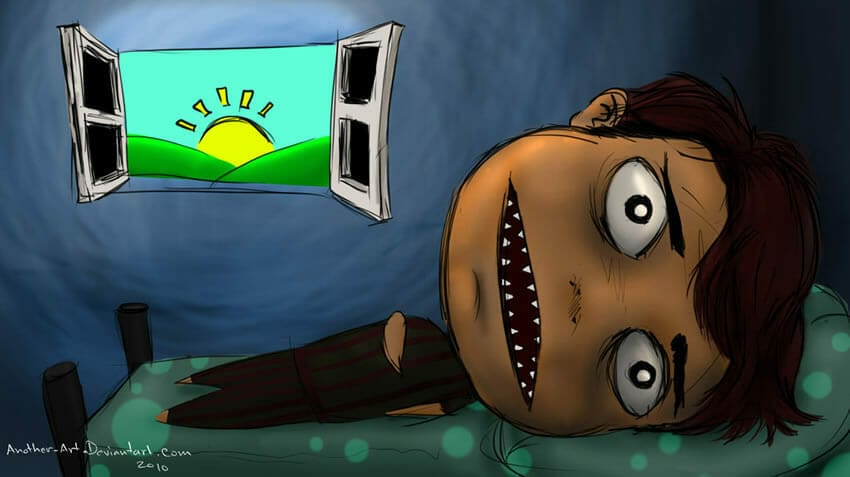
6. Exercise
Mainly if you work in an office and do not engage in much physical activity during the day, establish a workout schedule for yourself. Just 15 minutes a day of activity can help, as long as you do so a good 30 minutes or more before bed. Exercise enables you to get the oxygen you need to rest and sleep well. Set the alarm to ensure you don’t oversleep. Oversleeping may feel luxurious, but it can increase the odds of a bout with insomnia on the night after your long night’s rest. Don’t sleep for more than eight hours.
Being physically active is essential for sleeping well. Mounting evidence shows that people who exercise regularly tend to snooze better than their couch potato counterparts—especially when it comes to those with chronic insomnia.
Not convinced? Consider this. One study concluded that people who get 60 minutes of exercise five days per week have more normal REM sleep than non-exercisers. But you might not need to sweat it out for quite that long to reap the benefits. Other findings show that insomniacs who engage in thirty-minute spurts of exercise just three or four times a week sleep for nearly an hour longer than sedentary folks and wake up less frequently during the night.
Try keeping a sleep journal to track your insomnia. Write down each thing you have tried and whether it worked or not. Keep a list of nights when you were particularly stressed out, and if you had insomnia at night. Keep track of activities, such as exercise that may affect your sleep. Soon, you may see patterns or habits you can change to get your sleep routine back on track.
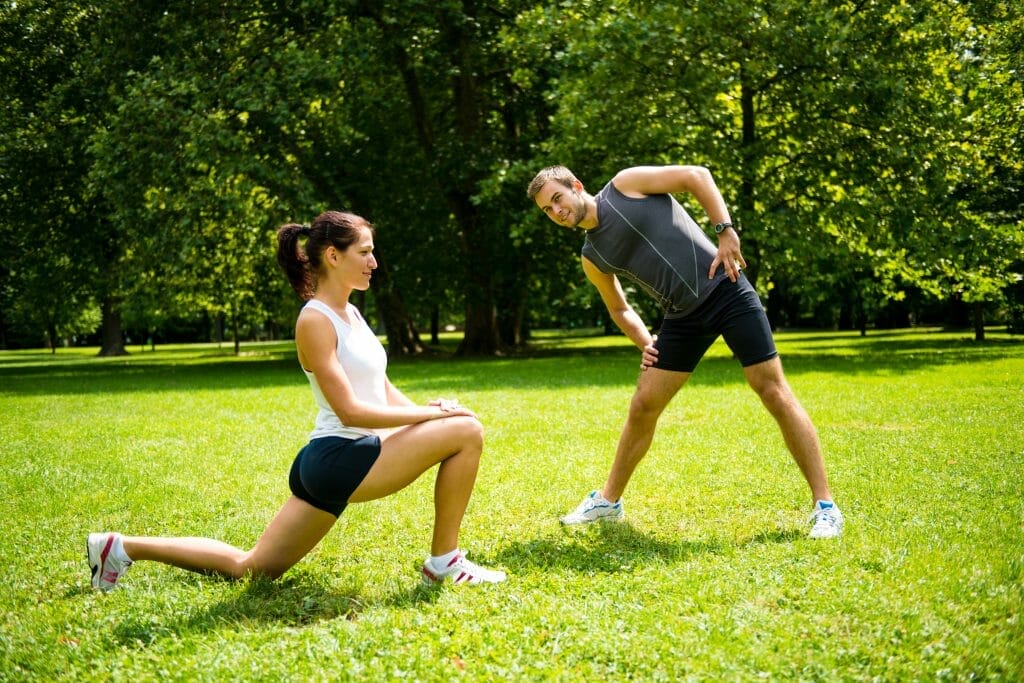
Conclusion
By implementing these six tips for better sleep, you can significantly improve your sleep quality and overall well-being. By sticking to a consistent sleep schedule, creating a sleep-friendly environment, limiting screen time before bed, avoiding stimulants (e.g. Coffee) and heavy meals close to bedtime, establishing a relaxing bedtime routine, and incorporating regular exercise, you can enhance your chances of getting a restful night’s sleep.
Remember, good sleep is essential for your physical health, mental well-being, and daily productivity, so prioritize your sleep habits and make positive changes for a better night’s rest.

Frequently Asked Questions (FAQ)
Q: How long should I stick to a consistent sleep schedule before seeing improvements in my sleep quality?
A: It varies from person to person, but generally, it takes a few weeks of sticking to a consistent sleep schedule to notice improvements in sleep quality. Your body needs time to adjust to the new routine and establish a regular sleep-wake cycle.
Q: Is it okay to have occasional variations in my sleep schedule, such as staying up late on weekends?
A: Occasional variations in your sleep schedule can disrupt your sleep pattern and make it harder to maintain a consistent sleep routine. It’s best to try to stick to a similar schedule even on weekends to support your body’s natural sleep-wake rhythm.
Q: How can I create a sleep-friendly environment in a noisy or bright living situation?
A: To create a sleep-friendly environment in a noisy or bright living situation, consider using earplugs, white noise machines, or soothing sounds to mask external noise. Use blackout curtains or an eye mask to block out unwanted light. You can also try using a fan or a sound machine to create a soothing ambiance.
Q: Are there any natural remedies or supplements that can aid in improving sleep?
A: While there are natural remedies and supplements that claim to aid sleep, it’s important to consult with a healthcare professional before trying them. Some options may include herbal teas like chamomile or valerian root, melatonin supplements, or relaxation techniques like lavender aromatherapy or warm baths. However, individual responses may vary, so it’s best to seek personalized advice.
Q: Can I replace exercise with other activities, such as meditation or relaxation techniques, to promote better sleep?
A: While exercise can promote better sleep, if you are unable to exercise or prefer alternative activities, relaxation techniques like meditation, deep breathing exercises, or gentle stretching can also help improve sleep quality. Find what works best for you and incorporate it into your bedtime routine.

Have an Article to Suggest?
Tropika Club is always looking for new and exciting content to feature in their magazine and they value the input of our readers. If you have any noteworthy content or articles that you believe would be a great addition to Tropika Club’s magazine, we are open to suggestions and encourage you to reach out to us via email at [email protected]. By doing so, Tropika Club values your expertise and knowledge in the matter and appreciates your willingness to help. We will review your recommendations and update our list accordingly
Meanwhile, Check Out Tropika Club’s Ecosystem of Websites

Tropika Club Magazine – Tropika Club Magazine is a Singapore-based publication that features articles on a wide range of topics with a focus on local businesses and content for the region. The magazine emphasizes supporting local businesses through its #SupportLocal initiative, which includes coverage of everything from neighborhood hawker stalls to aesthetic clinics in town. In addition to highlighting local businesses, Tropika Club Magazine also covers a variety of local content, including beauty, lifestyle, places, eats, and what’s on in Singapore and the Asia Pacific region.
Tropika Club Deals – Tropika Club Deals is a leading online deals and voucher shopping site in Singapore, offering amazing discounts on beauty, wellness, and fitness products and services. It’s the perfect platform for customers who want to discover the best deals without having to commit to a specific appointment date and time. These deals are available at major beauty stores, facial salons, hair salons, and other brands in Singapore, with no minimum spend required. Choose from guaranteed discounted deals in the categories of hairstyling, hair removal, facial & aesthetics, body slimming, brows & lashes, nails & makeup, massage & spa or fitness & wellness. Tropika Club Deals is also ideal for customers who want to buy vouchers as gifts or to use for the future. So whether you’re looking to save money on your next haircut or want to treat yourself to a relaxing massage, Tropika Club Deals has got you covered with the best voucher and coupon deals in Singapore!



